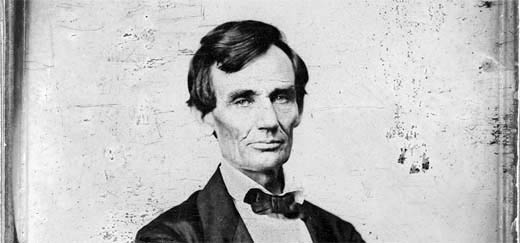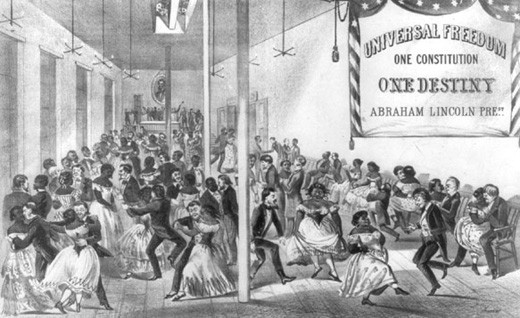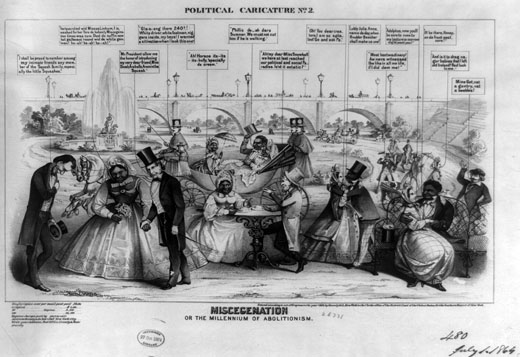Friday
Mar182011
Fears & Myths of Miscegenation: Anti-Lincoln Cartoons in the Election of 1864
 Friday, March 18, 2011 at 10:14AM
Friday, March 18, 2011 at 10:14AM 
With his political fortunes dwindling, President Abraham Lincoln approached the election of 1864 as unpopular as ever and on the verge of losing the Civil War. Facing opposition from within the Republican Party, pushback to the Emancipation Proclamation and backlash in the press, he had a tough road to reelection. Furthermore, Maj. General George McClellan, whom Lincoln had fired for subordination, was challenging him as the Democratic Party Nominee on a "peace" platform that called for negotiations and potential recognition of the Confederacy.
While Lincoln's prosecution of the war dominated the political debate, slavery was the ultimate wedge issue in the campaign against the president -- and the newspaper, the New York World, had a field day with the delecate subject of race relations. Taking Lincoln's abolitionist sentiments to the extreme, the World claimed that what the president really wished was, "perfect social equality of black and white," even advocating intermarrying so as to become, "the finest race on earth". World editors David Croly and George Wakeman distributed a pamphlet called, "Miscegenation: The Theory of the Blending of the Races, Applied to the American White Man and the Negro," and also illustrations by Bromley & Co that were designed to arouse the fears of whites, showing inane depictions of the ramifications of racial equality.

While the World's campaign was scurrilous, the miscegenational rumors spread. Click the below image to see an example of Lincoln's so-called "vision" of racial harmony and see just how far these depictions pushed the envelope of racial politics:
Little known fact: the Republican's 1864 slogan "don't swap horses in the middle of the stream" would later be used in the film Wag the Dog.
Tagged  1864,
1864,  Abraham Lincoln,
Abraham Lincoln,  Civil War
Civil War
 1864,
1864,  Abraham Lincoln,
Abraham Lincoln,  Civil War
Civil War 

